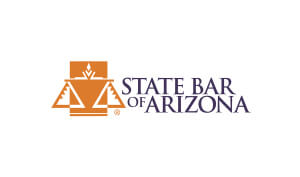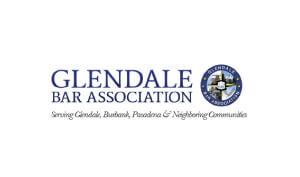Over 50 years of legal experience!









Auto
Fraud
Our Auto Fraud Attorneys Sue Car Dealerships Who Rip Off Car Buyers
If you have been ripped off by a car dealer, our auto fraud attorney will file a lawsuit to get your money back and/or cancel your contract. Our auto fraud lawyer takes the time to research your case and will sue your car dealer for selling a car with frame damage, selling a car for more than the advertised price, charging predatory (high) interest rates, and not disclosing engine problems that needed repair at the time of the purchase. Our attorneys sue car dealerships on behalf of our clients on a contingency fee.
FCRA
File A Credit Dispute Or Credit Bureau Dispute with an FCRA Attorney
When you are looking to dispute credit report or file a credit dispute, it is
highly recommended you seek an experienced FCRA Attorney to help you through the process. There are many intricacies involved when dealing with credit reporting agencies, and a credit report disputing attorney will understand how to navigate the situation best. Click here to learn more information about filing a credit dispute.
Lemon Law
Lemon Law Attorneys Sue car & truck Manufacturers making defective vehicles
If you have had to take your vehicle in for service more than 1-2 times for an issue that is covered by the manufacturer’s warranty, our lemon law attorney will file a lawsuit to get your money back and/or cancel your contract. Our Lemon law lawyer takes the time to research your case and will sue your car maker for selling a car with defects that need multiple repairs during the warranty period. Our attorneys sue car manufacturers on behalf of our clients on a contingency fee basis.
We Protect Consumers from Fraud and Illegal Practices Consumer
Consumer Action Law Group is a top-rated consumer law firm in Los Angeles, California. Our attorneys help people who are involved in disputes with car dealers, vehicle manufacturers, banks, credit card companies, and insurance companies. Our lawyers are able to help if you are feeling the sting of a car purchase that left you feeling ripped off, going through foreclosure, or hardship due to job loss or illness, or having difficulty paying your credit card or medical bills.
Our auto fraud attorneys sue car dealers to help car buyers get their money back and get out of bad contracts with high interest rates. Our Lemon Lawyers help get a full refund for defective vehicles. Our bankruptcy lawyers are very experienced with filing bankruptcy to help consumers wipe out credit card debt and medical bills. Our foreclosure attorneys have a track record of success in suing mortgage lenders and stopping foreclosure sales.
Practice Areas
Recover
Foreclosure Surplus
We Recover Foreclosure Surplus for homeowners with equity after a bank auction
Our Bankruptcy Attorney Will Eliminate Your Debt
Our Chapter 7 bankruptcy attorney can stop a foreclosure, eliminate debt, stop collections, stop wage garnishment, stop the eviction process, and get rid of old IRS debt as well as judgments. Most people file for Chapter 7 bankruptcy to get rid of credit card debt and medical bills and are surprised to learn that the benefits of filing extend far beyond wiping out debt.
Our Chapter 13 bankruptcy attorney can immediately stop your foreclosure, eliminate your debt, stop collections, and eliminate [strip] a second lien [HELOC] if possible. Filing a Chapter 13 is usually the best way to stop foreclosure and save your home, as long as you can afford to keep paying the mortgage and get caught up on missed mortgage payments.
Our bankruptcy lawyer will take the time to explain the process, our low fees make it possible for most people to file and get a fresh start. Filing bankruptcy is usually a great step towards rebuilding credit. We dispel the myths of bankruptcy being a bad thing; it is a legal remedy that helps people to get their personal finances under control. In case you were wondering, here is the difference between Chapter 7 vs. Chapter 13 bankruptcy.
Our Foreclosure Attorney Will Stop Your Foreclosure Sale
Our foreclosure attorney stops home foreclosures every day. We file bankruptcies and lawsuits depending on your case and claim. We stop foreclosure when the homeowner receives a Notice of Default or a Notice of Trustee Sale.
Our foreclosure lawyers work in both state and federal courts. We get court orders to stop foreclosure and we know how to stop foreclosure no matter how late in the process or how close to the time of sale.
When our lawyers stop your foreclosure, we give you options to save your home and get back on your feet financially; or to take time to sell your home on your terms, without the undue pressure of a foreclosure auction.
Our Real Estate Attorney Will Recover Surplus Funds after a Foreclosure Sale
Our real estate attorney will help you quickly recover any funds that are rightfully yours after losing your home in foreclosure. Our real estate lawyer will file a claim with the court and make sure that you receive all the funds that you are entitled to recover.
Our attorney will research your case to let you know if you have a claim for wrongful foreclosure, or if there were any violations of the foreclosure laws. We will help you recover surplus funds after foreclosure as well as protect your rights and stop any illegal eviction proceedings.











